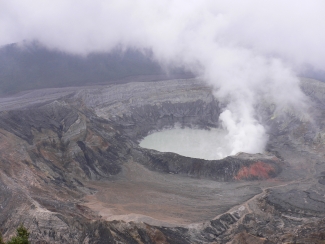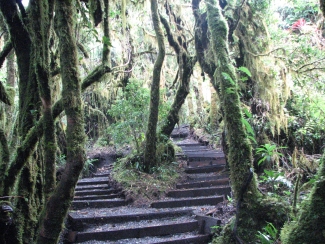FILTER
Displaying 281 - 290 of 406 publications
This study of the deleterious effect on fishing by the water hyacinth invasion of Lake Victoria found an unusual positive: the decline of fish catchability caused by the the abundance of water…
8 April 2008 | EfD Discussion Paper | SwedenJust how important social context is for voluntary contributions is investigated in a natural field experiment, where subjects made either actual or hypothetical contributions to a national park in…
8 April 2008 | EfD Discussion Paper | Central America, SwedenIn a natural field experiment, the authors quantified the importance of anonymity, reciprocity, and conformity through the provision of social reference levels in order to explain voluntary…
8 April 2008 | EfD Discussion Paper | Central America, SwedenThe revitalization of Machakos, Kenya, from overpopulation and resource degradation—seemingly by its population growth—has added another round to the Boserupian vs. Malthusian debate, and may make…
8 April 2008 | EfD Discussion Paper | Sweden, KenyaThe yellow floating heart is a water weed causing nuisance problems in Swedish watercourses. An economic analysis of this is required where various management options are considered. The benefits of a…
1 January 2008 | Discussion Paper | SwedenLand degradation in the form of soil erosion and nutrient depletion presents a threat to food security and sustainability of agricultural production in many developing countries. Governments and…
1 January 2008 | Peer Reviewed | Sweden, EthiopiaThe purpose of this paper is to test the absolute as well as the relative importance of these three reasons for non-selfish behavior. This is done by conducting a natural field experiment on voluntary…
1 January 2008 | Peer Reviewed | Central America, SwedenWe investigate the importance of the social context for people’s voluntary contributions to a national park in Costa Rica, using a natural field experiment. This present paper presents results of a…
1 December 2007 | Peer Reviewed | Central America, SwedenEmpirical evidence suggests that people’s risk-perceptions are often systematically biased. This paper develops a simple framework to analyse public policy when this is the case. Expected utility…
29 November 2007 | Discussion Paper | SwedenImbrasia Belina also known as the mopane worm, like other edible insects and caterpillars, is a vital source of protein to Southern African countries. The worms live and graze on mopane trees, which…
30 April 2008 | Discussion Paper | Sweden, South Africa
